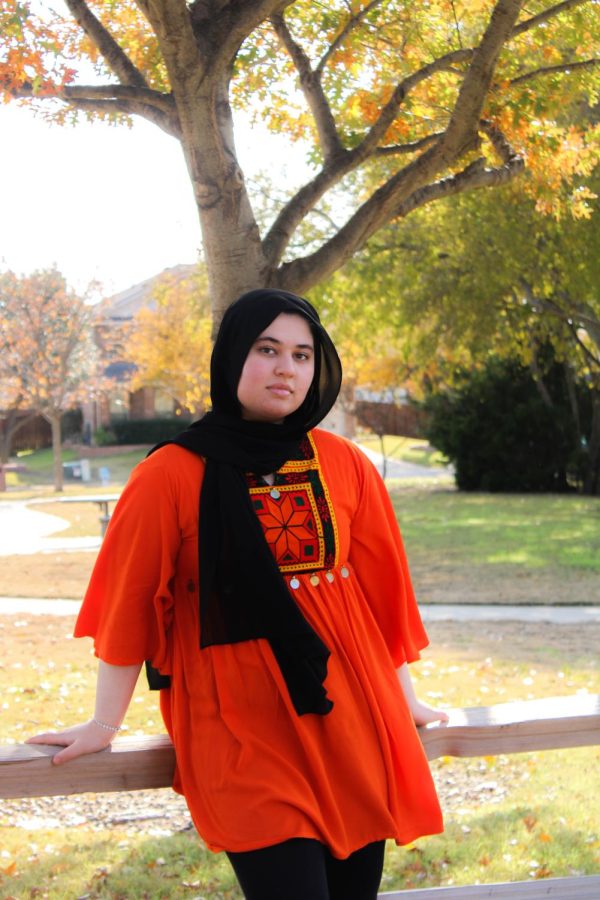Breaking Barriers
Senior becomes more confident with her culture as she grows
February 15, 2023
As Madina Noory’s second-grade teacher swiftly read through the roll call, Noory recalled the word her mom taught her to reply with: here. Minutes pass, and her teacher reads all of the K, L, and M last names. The teacher slowly called out “Madina Noory”, and Noory then responded with the only English word she knew at that moment.
After immigrating to the United States from Afghanistan prior to second grade, Senior Madina Noory found herself enduring an intense culture shock. As she worked to create connections with her classmates, she faced a language barrier among them.
“[When] I first came here, I didn’t know any English,” Noory said. “The first couple of months of school [were] hard. When my classmates would talk to me, I didn’t know what they were saying at all. [On] the first day of second grade, my mom came [into] the classroom with me. She told me when they call your name, say ‘here’. I didn’t even know that. That’s one of my most memorable moments and my first English word.”
From not knowing the same language as her peers to moving to the United States at the age of six, Noory always tried her best to fit in at school, whilst holding on strongly to her Afghan culture.
“I don’t know any other Afghan who has gone through the same things I’ve gone through. Not necessarily hardships, but moving here at a young age and then growing up in a new environment,” Noory said. “It’s hard because I don’t have that connection with anyone.”
And throughout it all, Noory never let anything get in the way of embracing her Afghan roots.
“I love my culture,” Noory said, “I love where I come from [and] my background. None of that changed. Now I express it differently, in different ways.”
She involves cultural norms and traditions in her everyday life, in the slightest things such as the way her family enjoys dinner together as a family.
According to Afghan Aid, dinner is not only a meal, it’s a period of the day when families come together and eat dinner communally. Whether during religious celebrations and festivals, or engagements and weddings, dinner in Afghanistan is traditionally eaten together.
“One important thing in Afghanistan is the family orientation. Every day, we eat dinner together as a family. Family plays a big role in Afghan culture,” Noory said. “And we’ve tried our best to keep it that way.”
Along with implementing family meals every day, Noory embraces her Afghan culture through celebrations and traditional wear.
“On Eid, which all Muslims celebrate, we wear our traditional Afghan [attire], which is big dresses. [They’re] very colorful and bold,” Noory said.
No matter the barriers and struggles Madina Noory went through, she persevered. Now at the age of 17, Noory is proud to say she embraces her background and also surrounds herself with great company.
“It’s nice to have friends that celebrate the same culture as you do because they get to know you on a personal level, a cultural level,” Noory said. “I have a very diverse friend group. I love teaching others about my culture and learning more about theirs.”
“A lot of people don’t know about Afghan culture, people just believe stereotypes they hear,” Noory said.
According to Human Rights Watch, 95% of the Afghan population does not have enough to eat and 3.5 million children are in critical need of nutritional support.
“And what you may see on the news about Afghanistan, doesn’t cover what’s going on in the background,” Noory said. “We need to see past the political aspect of things and we need to help the country out. We’ve got to look into what’s going on with the people, instead of just focusing on the political side.”
Through moving to America at a young age, learning English, and dealing with hardships so early on in life, Noory is now proud to say she found acceptance and balance with her own culture.
And looking back 12 years later, the thought of her first English word is just a distant reminiscence.



